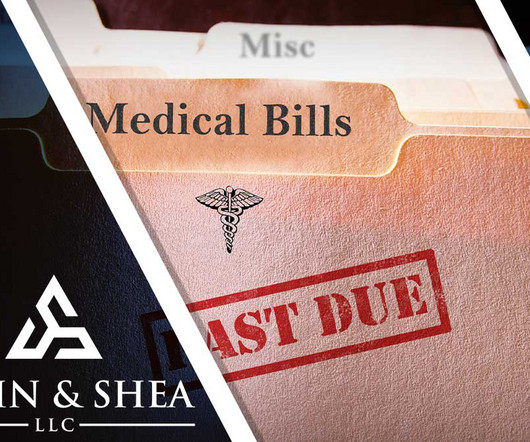Chapter 13 Bankruptcy Hardship Discharge: Am I Eligible?
Sawin & Shea
JANUARY 4, 2024
Filing for Chapter 13 bankruptcy is a positive step during a challenging time in your life. Instead of fighting with your creditors, you work with them proactively in the bankruptcy process to resolve your debts. In some cases, you may be eligible for a Bankruptcy Hardship Discharge.

















Let's personalize your content